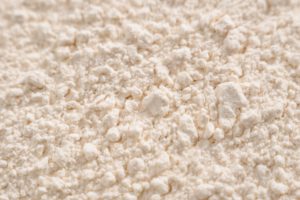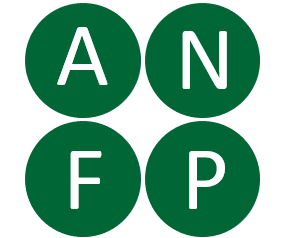Antibiotic Alternatives
Antibiotic resistance has become a growing concern in animal agriculture due to the overuse of antibiotics as growth promoters and the resulting development of resistance among bacterial populations. In response, the European Union has implemented a ban on the use of zinc oxide in pig breeding, which was a common alternative to antibiotics for preventing diarrhea in piglets. This ban has created a need for new alternatives to antibiotics and zinc oxide in animal nutrition.
One such alternative is the use of feed additives as antibiotic replacements. These additives, which may include prebiotics, probiotics, organic acids, and essential oils, can promote gut health, improve feed efficiency, and enhance immune function in animals. They have been shown to be effective in reducing the incidence of certain diseases and improving animal performance without the use of antibiotics.
However, the use of feed additives as antibiotic replacements is not without its challenges. The effectiveness of these additives can vary depending on the animal species, age, and health status, as well as the formulation and dosage of the additive. Additionally, their use can be more expensive than traditional antibiotics or zinc oxide.
Our mission is to contribute to the solution of replacing antibiotics and zinc oxide in pig nutrition. We are oriented in several directions: research on zinc nanoparticles and the use of natural antibiotic substances such as plant antibiotics and monoglycerides.
Zinc Nanoparticles

Zinc nanoparticles are being studied as a potential feed additive in pig nutrition instead of zinc oxide. They have high bioavailability, which may improve growth performance and o suppress post-weaning diarrhea in piglets. However, there are concerns about their potential toxicity and accumulation in pig tissues. Further research is needed to establish safe levels of supplementation.
Project: 2017 – 2019: Zinc nanocomplexes as an alternative to the replacement of antibiotics in pigs. NAZV QK1720349. (Principal investigator Pavel Horky)Pavel Horky)
Research outcomes: Pilot plan: VACLAVKOVA, E., HORKY, P. Verification of zinc nanocomplexes in operating conditions. 2019. Mendel University in Brno
Certified methodology: Methodology of modification and synthesis of zinc nanocomplexes for dietary use in farm animals, 2017
Research article: Zincphosphate-based nanoparticles as a novel antibacterial agent: in vivo study on rats after dietary exposure. Journal of Animal Science and Biotechnology, 2019
Research article: Zinc phosphate-based nanoparticles as alternatives to zinc oxide in diet of weaned piglets, Journal of Animal Science and Biotechnology, 2020
Research article: Importance of Zinc Nanoparticles for the Intestinal Microbiome of Weaned Piglets, Frontiers in Veterinary Sciences, 2022
Research article: Short-term supplementation of zinc nanoparticles in weaned piglets affects zinc bioaccumulation and carcass classification, Livestock Science, 2023
Natural Antibiotics

Essential oils and monoglycerides are potential alternatives to antibiotics in animal nutrition. These natural compounds have shown promise in improving animal health and performance without the negative consequences associated with antibiotics, such as the development of antibiotic-resistant bacteria.
Our research group is studying these potential antibiotic substances in vitro and in vivo. We have achieved interesting results through their encapsulation in biopolymeric carriers. Another interesting group are the blynes from traditional Zambian medicine to which we have access thanks to our connections in Zambia.
Projects: 2019 – 2022: Reducing the use of zinc and antibiotics in pig farms with innovative phyto-additives and their combination with other natural antimicrobial agents. TAČR Zéta TH04030172 (Principal investigator Pavel Horky)
2019 – 2021: Nanotransmitters of monoglycerides for the support of intestinal microbiome diversity in poultry TAČR Zéta TJ02000325 (Principal investigator Sylvie Skalickova)
Research outcomes: Essential Oils as a Feed Additives: Pharmacokinetics and Potential Toxicity in Monogastric Animals, Animals, 2020
Utility model: Encapsulated monoglycerides in broiler chickens nutrition. Skalickova, S, Horky, P., in cooperation with Addicoo Group s.r.o., 2020
Development of formulations for targeted transport

Targeted delivery of phytogenic substances is an important area of research that has the potential to improve the effectiveness, safety, and reduction of applied doses of active compounds delivery, ultimately leading to better animal´s performance.
The developed technologies meet the requirements for quality, the EU legislative framework for animal nutrition, and cost-effectiveness.
Our developed encapsulation procedures are suitable for a wide range of active substances. By optimizing the production process, we are able to target their delivery to different parts of the digestive tract
Connected Projects: 2019 – 2021: Nanotransmitters of monoglycerides for the support of intestinal microbiome diversity in poultry TAČR Zéta TJ02000325 (Principal investigator Sylvie Skalickova)
2019 – 2022: Reducing the use of zinc and antibiotics in pig farms with innovative phyto-additives and their combination with other natural antimicrobial agents. TAČR Eta TH04030172 (Principal investigator Pavel Horky)
2020 – 2025 Development of new generation of adaptogenic substances and nanotransport in feed industry. TAČR Trend FW01010053 (co-investigator Pavel Horky)
Research outcomes: Research Article: Development of pH-Responsive Biopolymeric Nanocapsule for Antibacterial Essential Oils, Inernational Journal of Molecular Sciences, 2020
Certified methodology of Synthesis of essential oils nanotransporter for monogastric animal nutrition, 2020,
Utility model: Encapsulated monoglycerides in broiler chickens nutrition. Skalickova, S, Horky, P., in cooperation with Addicoo Group s.r.o., 2020
